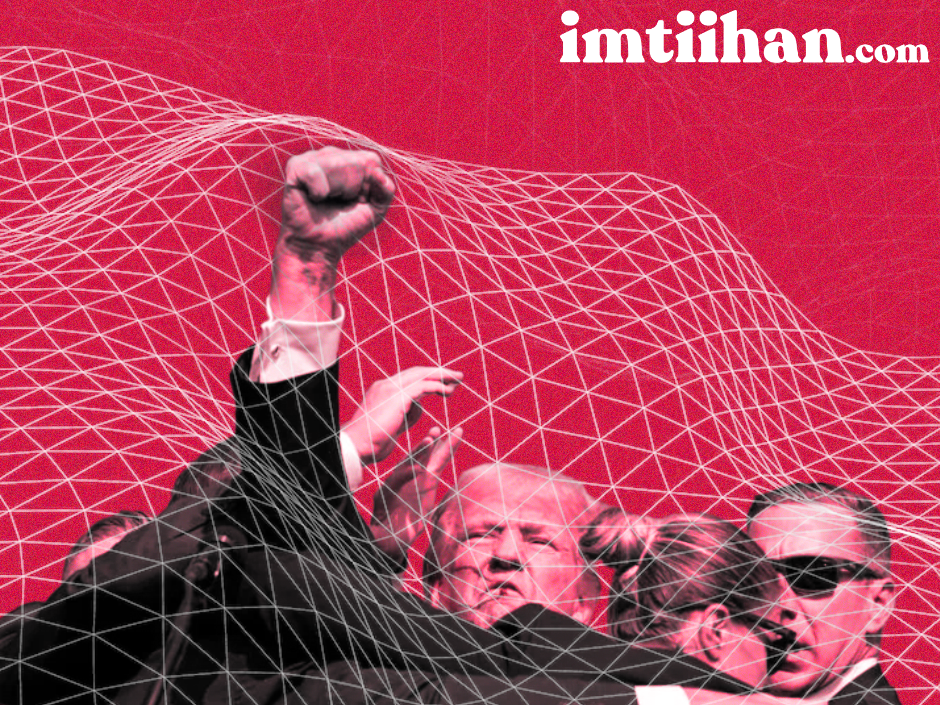In politics, cause and effect rarely follow a straight line. Often, it’s the unintended consequences of bold moves that leave the most enduring mark. As we step into the turbulent terrain of 2025 global politics, one such paradox is emerging clearly: Donald Trump’s aggressive return to the international stage is not consolidating global right-wing populism, as many predicted, but instead galvanizing liberal and centrist forces in countries that are otherwise drifting rightward. It’s the political equivalent of a mathematical paradox: minus multiplied by minus creating a surprising positive.
Historically, international political figures have often influenced domestic politics abroad, but rarely has one leader had such a sweeping, unintended impact as Trump. While Trump seeks to reaffirm his brand of economic nationalism and strongman diplomacy, his confrontational policies and rhetoric are producing a counterweight abroad. Liberal parties, once weakened or fragmented, are regaining strength not necessarily on the merits of their policy platforms alone but by standing firmly against Trump’s version of American dominance.
This pattern echoes earlier global political dynamics. In the late 19th century, Canadian Prime Minister Sir John A. Macdonald faced immense unpopularity and an economic downturn. Yet he salvaged his position by framing U.S. protectionist tariffs under President William McKinley as a threat to Canadian sovereignty. Macdonald stirred national pride, asserting that Canadians should resist American economic coercion. That narrative helped him win re-election in 1891. Fast forward to 2025, and the playbook remains largely the same, only with new characters and a new context.
Today, Canada’s Mark Carney is stepping into a similar nationalist-liberal role. A technocrat-turned-politician, Carney was initially perceived as too moderate to inspire widespread enthusiasm. But as Trump reimposed tariffs on Canadian metals and floated outlandish ideas like territorial annexation, Carney’s firm response struck a chord with Canadians. The Liberal Party, once trailing at 16 percent, is now leading at 46 percent. Much of this shift has come from left-leaning voters who abandoned the New Democratic Party, drawn instead to Carney’s composed resistance and appeal to national dignity.
The same effect is playing out in other Western democracies. In Mexico, President Claudia Sheinbaum saw her approval ratings soar after rejecting Trump’s demands on fentanyl control and immigration. Far from being weakened by confrontation with the United States, Sheinbaum’s image as a dignified and firm leader helped raise her popularity to 85 percent. Her approach mirrored Carney’s: respond without theatrics, assert national interest, and allow Trump’s bluster to define the contrast.
France’s Emmanuel Macron and Germany’s Olaf Scholz have experienced similar, if more modest, boosts. In both countries, the far right had been gaining ground, especially Germany’s AFD, which reached 20 percent in some polls. Yet public reaction to Trump’s perceived betrayal of Ukraine and his association with right-wing influencers like Elon Musk and JD Vance has cooled that momentum. The nationalist surge, which fed off fear and identity politics, is now bumping against the reality that alignment with Trump carries political risk and reputational damage.
What we are seeing is not a mere fluctuation in approval ratings but a shift in the political axis itself. Trump’s hardline positions, intended to embolden right-wing nationalism, are instead functioning as a rallying point for moderate and liberal leaders who frame themselves as defenders of national integrity against foreign coercion. The irony is thick: the more Trump tries to export his ideology, the more he empowers its ideological opposites abroad.
This phenomenon is rooted in the psychological dynamics of national identity. Political science explains it through the “rally ’round the flag” effect, where external threats trigger internal unity. But this time, the rally effect is not boosting Trump’s ideological allies—it is bolstering his adversaries. Voters are not necessarily embracing liberalism out of enthusiasm but out of a perceived need to protect their sovereignty, culture, and political norms from American overreach.
The historical parallel with McKinley and Macdonald reminds us that protectionism and economic nationalism can stir deep nationalistic responses, sometimes from entirely unexpected corners. As 2025 unfolds, the global political map is being redrawn, not by coordinated liberal movements, but by a reactive, voter-driven rejection of Trump-style politics. The strategy is not revolutionary. It is counterintuitive. When two negatives meet, economic aggression and political provocation, they are producing a positive for liberal democracies. The rightward push, taken to extremes, is creating its own backlash. It is not just a pendulum swing. It is a paradox. And it may well define the next chapter of global governance.

